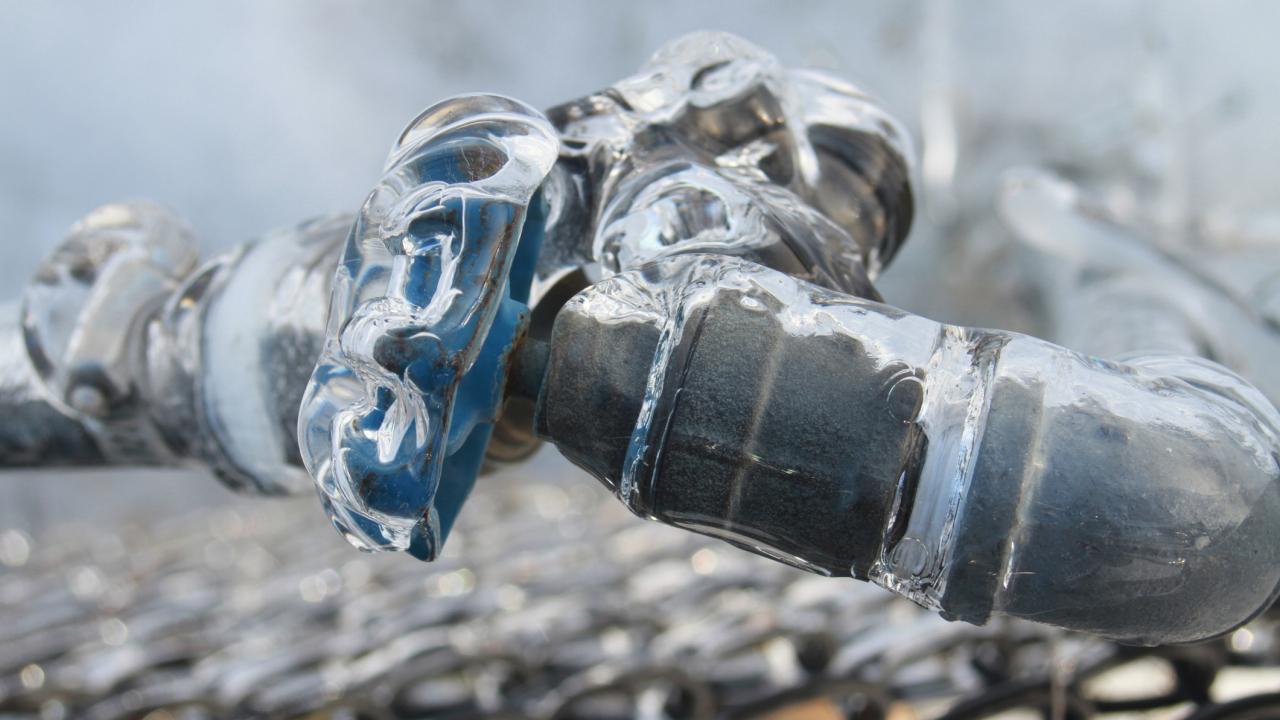Important Advice for Avoiding Frozen Pipes in Winter Conditions
Important Advice for Avoiding Frozen Pipes in Winter Conditions
Blog Article
How do you actually feel in regards to How to prepare your home plumbing for winter weather?

Winter can wreak havoc on your pipes, especially by freezing pipes. Below's just how to prevent it from taking place and what to do if it does.
Intro
As temperatures drop, the risk of frozen pipes boosts, potentially causing expensive repair services and water damages. Comprehending exactly how to avoid frozen pipes is essential for property owners in cold climates.
Avoidance Tips
Protecting susceptible pipes
Cover pipes in insulation sleeves or use warmth tape to secure them from freezing temperatures. Concentrate on pipelines in unheated or exterior locations of the home.
Heating strategies
Keep indoor areas properly warmed, particularly locations with plumbing. Open up cabinet doors to enable cozy air to distribute around pipelines under sinks.
How to determine icy pipes
Search for lowered water flow from faucets, uncommon smells or sounds from pipes, and visible frost on exposed pipelines.
Long-Term Solutions
Architectural adjustments
Think about rerouting pipelines away from exterior walls or unheated locations. Add added insulation to attic rooms, cellars, and crawl spaces.
Upgrading insulation
Invest in top quality insulation for pipes, attic rooms, and wall surfaces. Proper insulation assists preserve constant temperatures and decreases the threat of icy pipes.
Shielding Outside Pipes
Garden tubes and outside taps
Disconnect and drain pipes garden pipes before wintertime. Mount frost-proof spigots or cover exterior faucets with protected caps.
Recognizing Frozen Pipes
What triggers pipelines to freeze?
Pipes ice up when revealed to temperatures below 32 ° F (0 ° C) for prolonged durations. As water inside the pipelines ices up, it increases, putting pressure on the pipe walls and potentially triggering them to rupture.
Dangers and problems
Icy pipelines can cause water disturbances, residential or commercial property damages, and expensive repair services. Ruptured pipelines can flooding homes and cause comprehensive structural damage.
Indications of Frozen Water Lines
Recognizing icy pipes early can avoid them from rupturing.
What to Do If Your Pipes Freeze
Immediate actions to take
If you suspect frozen pipelines, maintain faucets open to alleviate stress as the ice thaws. Utilize a hairdryer or towels soaked in warm water to thaw pipelines slowly.
Verdict
Preventing frozen pipelines requires proactive procedures and quick reactions. By comprehending the reasons, indicators, and safety nets, homeowners can safeguard their plumbing during winter.
5 Ways to Prevent Frozen Pipes
Drain Outdoor Faucets and Disconnect Hoses
First, close the shut-off valve that controls the flow of water in the pipe to your outdoor faucet. Then, head outside to disconnect and drain your hose and open the outdoor faucet to allow the water to completely drain out of the line. Turn off the faucet when done. Finally, head back to the shut-off valve and drain the remaining water inside the pipe into a bucket or container. Additionally, if you have a home irrigation system, you should consider hiring an expert to clear the system of water each year.
Insulate Pipes
One of the best and most cost-effective methods for preventing frozen water pipes is to wrap your pipes with insulation. This is especially important for areas in your home that aren’t exposed to heat, such as an attic. We suggest using foam sleeves, which can typically be found at your local hardware store.
Keep Heat Running at 65
Your pipes are located inside your walls, and the temperature there is much colder than the rest of the house. To prevent your pipes from freezing, The Insurance Information Institute suggests that you keep your home heated to at least 65 degrees, even when traveling. You may want to invest in smart devices that can keep an eye on the temperature in your home while you’re away.
Leave Water Dripping
Moving water — even a small trickle — can prevent ice from forming inside your pipes. When freezing temps are imminent, start a drip of water from all faucets that serve exposed pipes. Leaving a few faucets running will also help relieve pressure inside the pipes and help prevent a rupture if the water inside freezes.
Open Cupboard Doors
Warm your kitchen and bathroom pipes by opening cupboards and vanities. You should also leave your interior doors ajar to help warm air circulate evenly throughout your home.

I'm certainly very taken with Preventing and dealing with frozen pipes and I am hoping you enjoyed the new blog post. Sharing is caring. Helping people is fun. We value reading our article about Winter Plumbing Precautions: Preventing Frozen Pipes.
Click Here Report this page